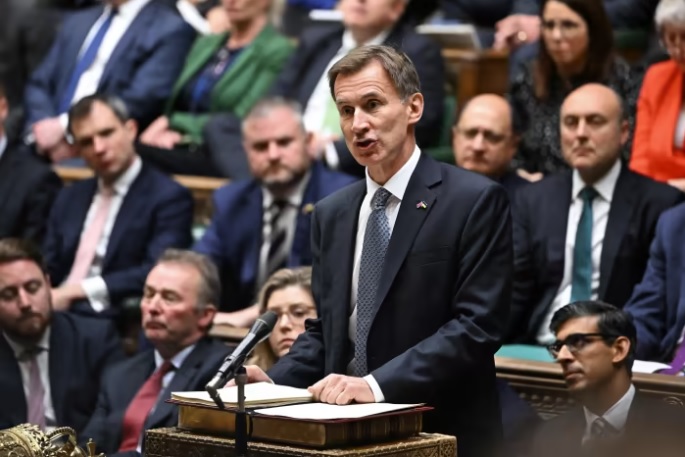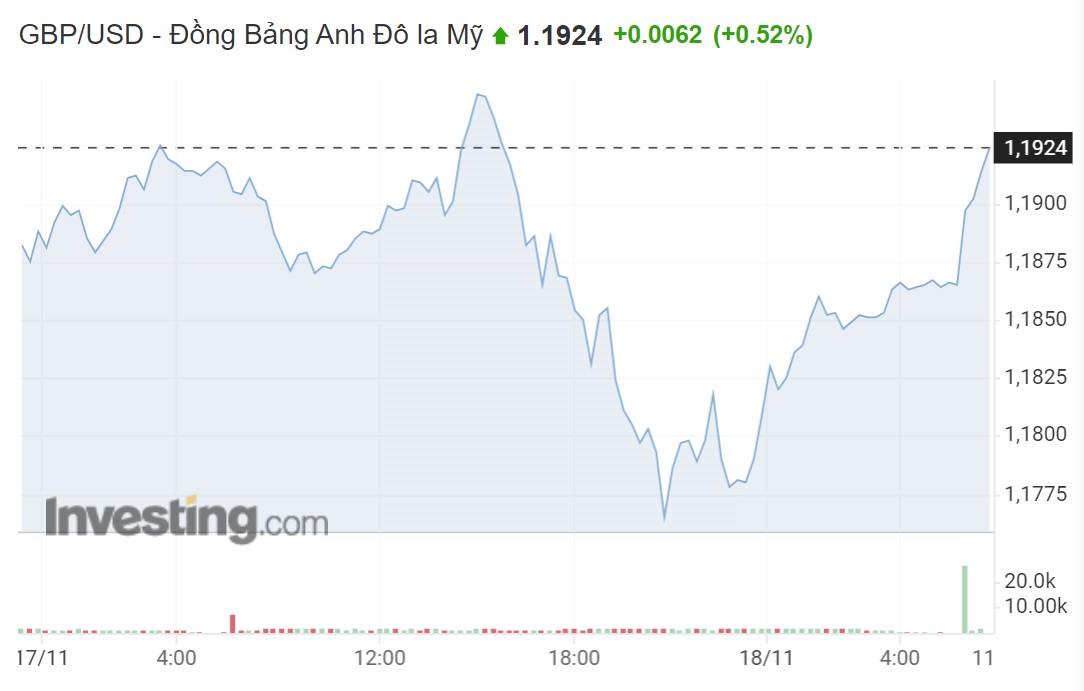How does the Autumn Statement impact the pound?
UK Chancellor Hunt promised a "tough" autumn statement last week. But it only becomes tough after two years, and that’s when the Conservatives will likely be out of office anyway. It seems like an astute move, but can it improve the fortunes of the pound?

UK Chancellor Hunt promised a "tough" autumn statement last week.
>> Sterling: a good bounce-back trade?
The Chancellor produced the opposite of a "jam tomorrow" budget last week. The next two years see very little in the way of the much-vaunted fiscal toughness, but then the austerity kicks in. Why do this? If we were being charitable, we’d say that there were two reasons.
The first, which is economic, is that the Chancellor put himself in a corner by arguing that the financial markets were demanding a tough budget after the shambles caused by the previous Truss-led government.
The second, which is political, is that the Chancellor wanted to back-load the fiscal pain in order to make the Labour Party’s job harder when it likely takes over in around two years’ time.
Mr. Steve Barrow, Head of Standard Bank G10 Strategy, said there would be faults in both of these strategies. On the first point, the financial markets were not demanding some sort of draconian fiscal austerity. Investors are wise enough to realize that the unfunded fiscal splurge by Hunt’s predecessor, Kwarteng, was a one-off. Hunt did not need to introduce significant fiscal austerity. He merely had to rescind Kwarteng’s policies, which he did before the budget, and then present a neutral policy going forward, perhaps even with some minor support at the outset. Financial markets had already rebounded before Hunt delivered his Autumn Statement, and the furor in the pensions market had died down as well.
On the second strategy of planning for fiscal toughness after two years, any incoming Labour government will simply rip up these plans. Of course, it might announce tax hikes of its own, but these will be in the form of the oxymoron "popular taxes" on the very wealthy. It looks to us as if the Chancellor has simply accepted—or worse, encouraged—the election defeat that seems to be looming in around two years’ time.
>> UK's inflation pressure and impacts on GBP
But does this make it bad for sterling? Well, it certainly can’t make it any worse than it was during the Truss/Kwarteng saga. However, as Hunt admitted, the one thing Kwarteng did get right was to identify that the UK’s big problem is underperforming growth, especially productivity. This situation is much worse given that massive withdrawals from the labor market mean weaker labor supply, which puts more emphasis on productivity (and investment) to lift growth. Mr. Steve Barrow believes it is difficult to make a structural case for a stronger pound in the long run unless there is some improvement here.

GBP/USD fluatuations
The independent Office for Budget Responsibility (OBR) noted in its accompanying budget documents that the decade since 2010 has seen UK productivity fall an average of 1.2% points from the decade preceding the 2008 global financial crisis.This is twice as much as the G7 average of 0.6%. So, while all countries are suffering, the UK is suffering just about the most. And, say what you will about Kwarteng’s method for trying to lift this back up (via unfunded tax cuts and discredited trickle-down economics), there was at least an attempt to shock the economy into a recovery, something that seems notably lacking from Hunt’s Autumn Statement.
Mr. Steve Barrow said while we could go on, we’d make two broad points about the autumn statement and the pound. The first is that, on a longer-term structural basis, there’s little here to like when it comes to the pound. Productivity growth will likely stay weak, and the recession will probably still be deeper than it would otherwise have been (given that Hunt has scared people with the big tax cuts and spending hikes, no matter that they start to bite in the future). But what about the short term? Things here could be more positive. For a start, fiscal responsibility has returned after the Truss debacle. UK assets have been hit hard, including the pound, and could continue to recover as a result as some calmness returns. All told, it’s hardly enough to make us feel that sterling is a sure-fire bet to rally, but, for now at least, if we had to lean to one side, it would be to the buy side.








